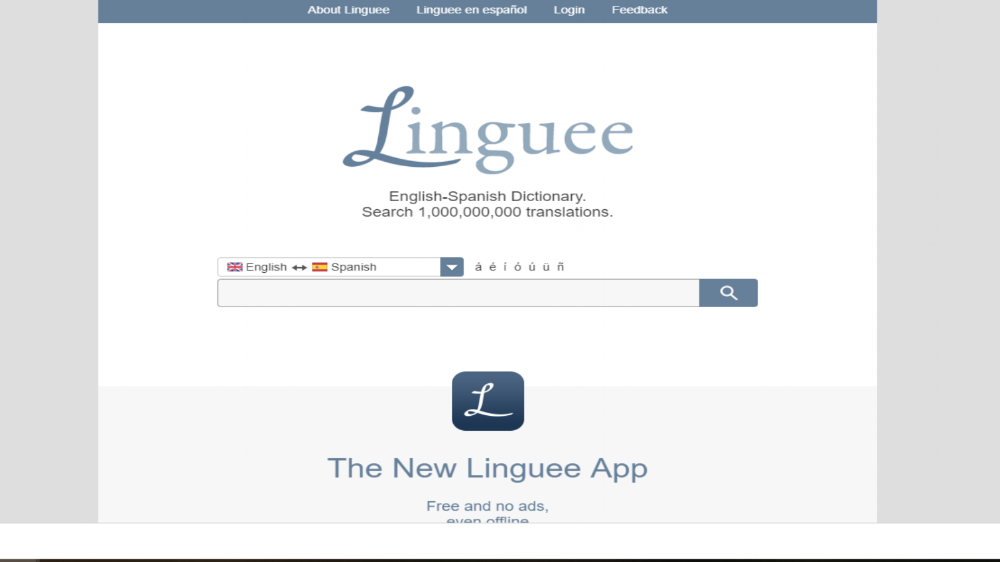
My Top Resources for Writing in Spanish
Dear Kate,
If you are are taking some of your classes in Spanish (or studying your entire degree abroad in Spain), you will find that writing papers and sitting exams is not only tiring but also complicated. Like most things, working on your language skills takes time and writing is a different skill than what you might be practicing in other areas of your Spanish life. That shouldn’t stop you, however, from doing your best on whatever writing task you have to complete, so today I want to share with you some of my favorite resources to use when I have a complex assignment ahead of me.
Note: I want to make it very clear that my Spanish is nowhere near perfect (especially when writing). However, in comparison to many other foreign speakers, it is pretty strong and I constantly find myself in situations where I am learning new things. Point of the story—while I am not the best and still have much to learn, I have improved a lot over the past years.
 A Bilingual Dictionary:
A Bilingual Dictionary:
Having a bilingual dictionary (whether it is off- or online) is absolutely key to writing in a foreign language. It is totally normal to get stuck on a word and not be able to move on until you sort out the translation. When this happens, it is handy to have a dictionary around to look up the word—and your phone totally counts. There are so many dictionaries available but my tangible one is a Cambridge Pocket Dictionary and two of my favorite online ones are PONS and WordReference. At the same time, it is also important to keep in mind that many times a word/idea in English doesn’t really translate well into Spanish and deciding if you want to include it in your text or not is a real dilemma.
Pro-tip: If the text you are writing is for an exam please (please) make sure that you clear bringing a dictionary with your teacher first. You shouldn’t have any problems—I never did—but just in case you should check!
A Spanish Dictionary:
When you are not sure if you are correctly using a word, consider looking it up in a Spanish dictionary. As opposed to a bilingual one (which is focused on helping you translate), this dictionary will help you understand the full meaning of the word you want to use. The official dictionary in Spain is the RAE (Real Academia Español) and there you can find the definitions of all the accepted words in the Spanish language.
Conjugation Tools:
If the word you are looking for is a verb, sometimes having a dictionary is not enough and you need to know the conjugations of that verb. I have a book that is 501 Spanish verbs that has all of the tenses of these verbs (which is almost any verb I need). Again, with online tools you can find lots of options for this task and many times I will just “ask google” for the conjugaciones de… [insert verb here] (conjugations of…). I know it might seem strange that I am still using this tool after years of living in Spain but there are many times when I don’t remember something or I just don’t know the correct form and the two second search is worth it.
 Linguee:
Linguee:
If you are looking for a specific phrase (especially for legal or business terms), Linguee is the perfect website for you. On this page you type in a whole phrase and it pulls up examples that it has found already translated online. This means that you can compare and contrast various translations of the same phrase from different sources and decide which one best fits what you are writing. Linguee is really a great tool when you are not sure how to say that word or phrase (and google.translate just isn’t going to cut it).
Wordreference:
I know I mentioned WordReference above as a dictionary source (you can also use its conjugation function), but I actually like this page best for its synonyms. Many times when I am writing about a specific subject—in both English and Spanish—I tend to want to repeat words. WordReference has a great synonym function that allows me to use a variety of words within the same text, something that also makes you look more experienced/professional when writing.
Pro-tip: Don’t expect every word you find as a synonym to work as a replacement for the word you originally planned to use. If you are not sure that they mean the same thing in your specific context, research both words before using it!
Google.translate:
I know before I said that Linguee is better than google.translate, but only in some cases—and it is better to have different tools for different things! This tool is useful when you already have a decent understanding of Spanish and you are only going to translate a short sentence or phrase (especially if it is more colloquial). This is also a great way to check things quickly when you just don’t remember what the translation was—but as soon as you see it you remember (and aren’t going to make a mistake here).
Pro-tip 1: You probably aren’t going to be able to tell the difference when something is translated incorrectly in google.translate (most of the time I’m not) but it is easy for native speakers to tell. So be careful when using this tool too much.
Pro-Tip 2: a friend of mine recently told me that he checks his spanish writing by putting it into google.translate and making sure the english translation of the Spanish is understandable. While I’ve never done it, this seems like a great way to use this tool to make sure you are saying what you want to say.
Ask for help:
 My top tip for writing better Spanish is getting help for any sort of serious project. When working on group things, I was more than happy to do a little bit more than my share if it meant that a native would look over and correct my work. And when I was writing both my bachelor and master theses I had someone help me go over all of the grammatical and vocab errors. In fact, today I still get help from my colleagues when writing important things in Spanish (and help them with their English). This doesn’t mean that I never write without help, but that I am very aware of my own capacities and if I have to write a 50 page paper or a really important email, I know that someone should review it for me. At the same time, I do know that the more I write, and the more I practice, the more I improve my writing skills.
My top tip for writing better Spanish is getting help for any sort of serious project. When working on group things, I was more than happy to do a little bit more than my share if it meant that a native would look over and correct my work. And when I was writing both my bachelor and master theses I had someone help me go over all of the grammatical and vocab errors. In fact, today I still get help from my colleagues when writing important things in Spanish (and help them with their English). This doesn’t mean that I never write without help, but that I am very aware of my own capacities and if I have to write a 50 page paper or a really important email, I know that someone should review it for me. At the same time, I do know that the more I write, and the more I practice, the more I improve my writing skills.
It definitely isn’t easy writing in your non-native language (unless you are like my brother who just seems to be a pro), but that shouldn’t turn you off. The only way to improve is to make mistakes, become aware of them, and work towards not making them again. As we say in Spanish, poco a poco (little by little) you will get better.
What are your top writing resources?
Sincerely,
Spain




